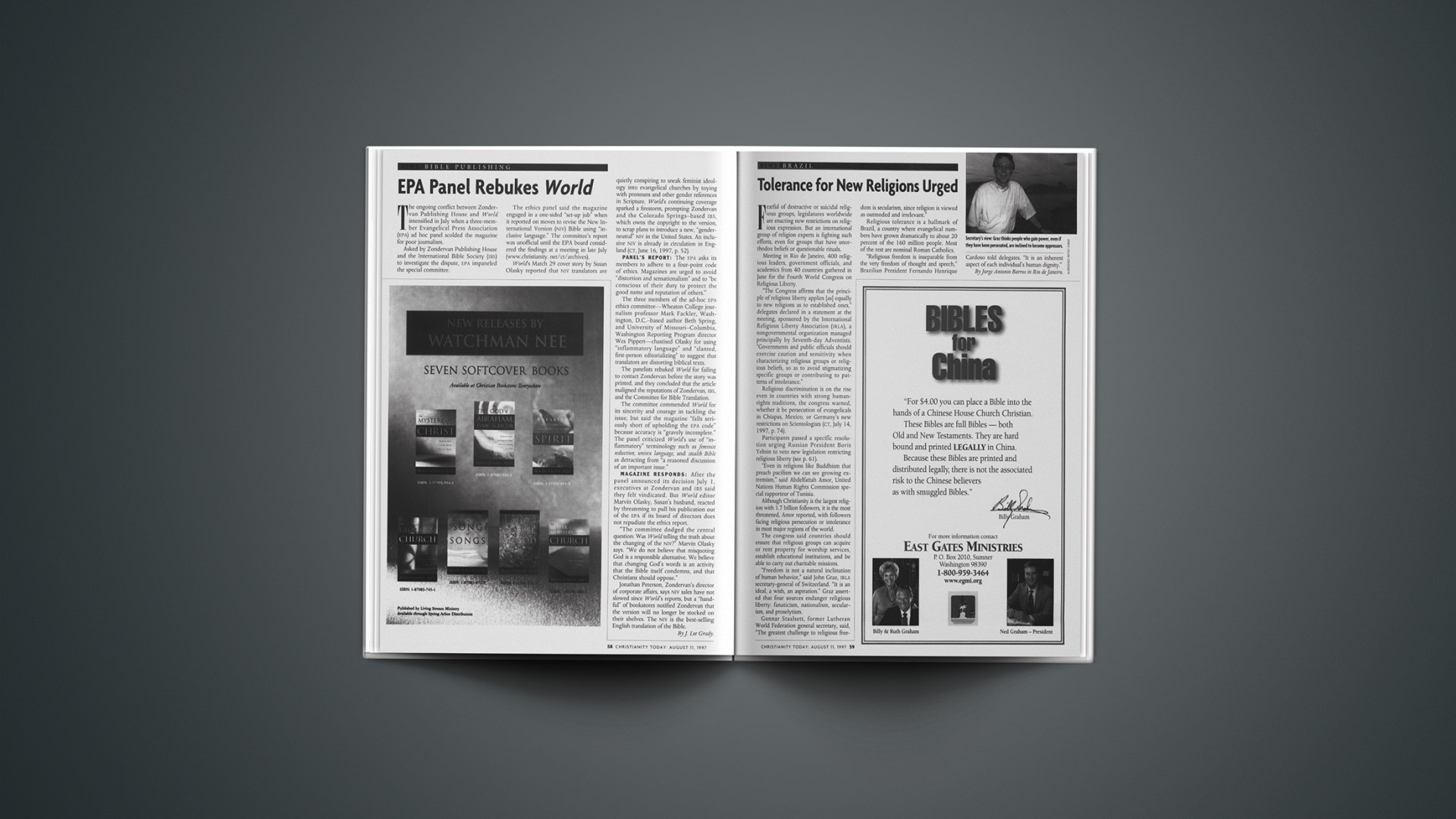Fearful of destructive or suicidal religious groups, legislatures worldwide are enacting new restrictions on religious expression. But an international group of religion experts is fighting such efforts, even for groups that have unorthodox beliefs or questionable rituals.
Meeting in Rio de Janeiro, 400 religious leaders, government officials, and academics from 40 countries gathered in June for the Fourth World Congress on Religious Liberty.
“The Congress affirms that the principle of religious liberty applies [as] equally to new religions as to established ones,” delegates declared in a statement at the meeting, sponsored by the International Religious Liberty Association (IRLA), a nongovernmental organization managed principally by Seventh-day Adventists. “Governments and public officials should exercise caution and sensitivity when characterizing religious groups or religious beliefs, so as to avoid stigmatizing specific groups or contributing to patterns of intolerance.”
Religious discrimination is on the rise even in countries with strong human-rights traditions, the congress warned, whether it be persecution of evangelicals in Chiapas, Mexico, or Germany’s new restrictions on Scientologists (CT, July 14, 1997, p. 74).
Participants passed a specific resolution urging Russian President Boris Yeltsin to veto new legislation restricting religious liberty (see p. 61).
“Even in religions like Buddhism that preach pacifism we can see growing extremism,” said Abdelfattah Amor, United Nations Human Rights Commission special rapporteur of Tunisia.
Although Christianity is the largest religion with 1.7 billion followers, it is the most threatened, Amor reported, with followers facing religious persecution or intolerance in most major regions of the world.
The congress said countries should ensure that religious groups can acquire or rent property for worship services, establish educational institutions, and be able to carry out charitable missions.
“Freedom is not a natural inclination of human behavior,” said John Graz, IRLA secretary-general of Switzerland. “It is an ideal, a wish, an aspiration.” Graz asserted that four sources endanger religious liberty: fanaticism, nationalism, secularism, and proselytism.
Gunnar Staalsett, former Lutheran World Federation general secretary, said, “The greatest challenge to religious freedom is secularism, since religion is viewed as outmoded and irrelevant.”
Religious tolerance is a hallmark of Brazil, a country where evangelical numbers have grown dramatically to about 20 percent of the 160 million people. Most of the rest are nominal Roman Catholics.
“Religious freedom is inseparable from the very freedom of thought and speech,” Brazilian President Fernando Henrique Cardoso told delegates. “It is an inherent aspect of each individual’s human dignity.”
Copyright © 1997 Christianity Today. Click for reprint information.










